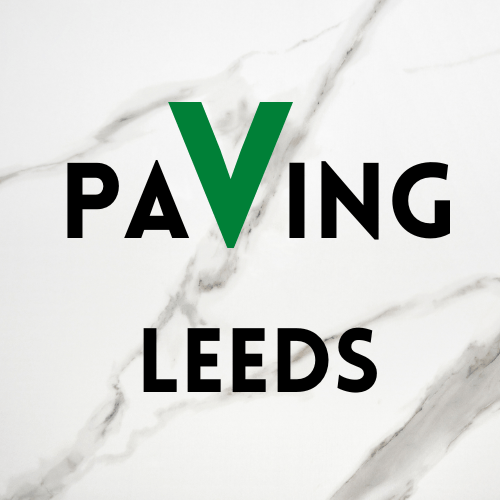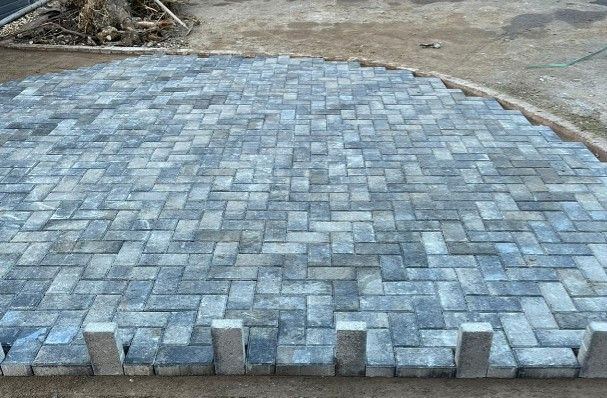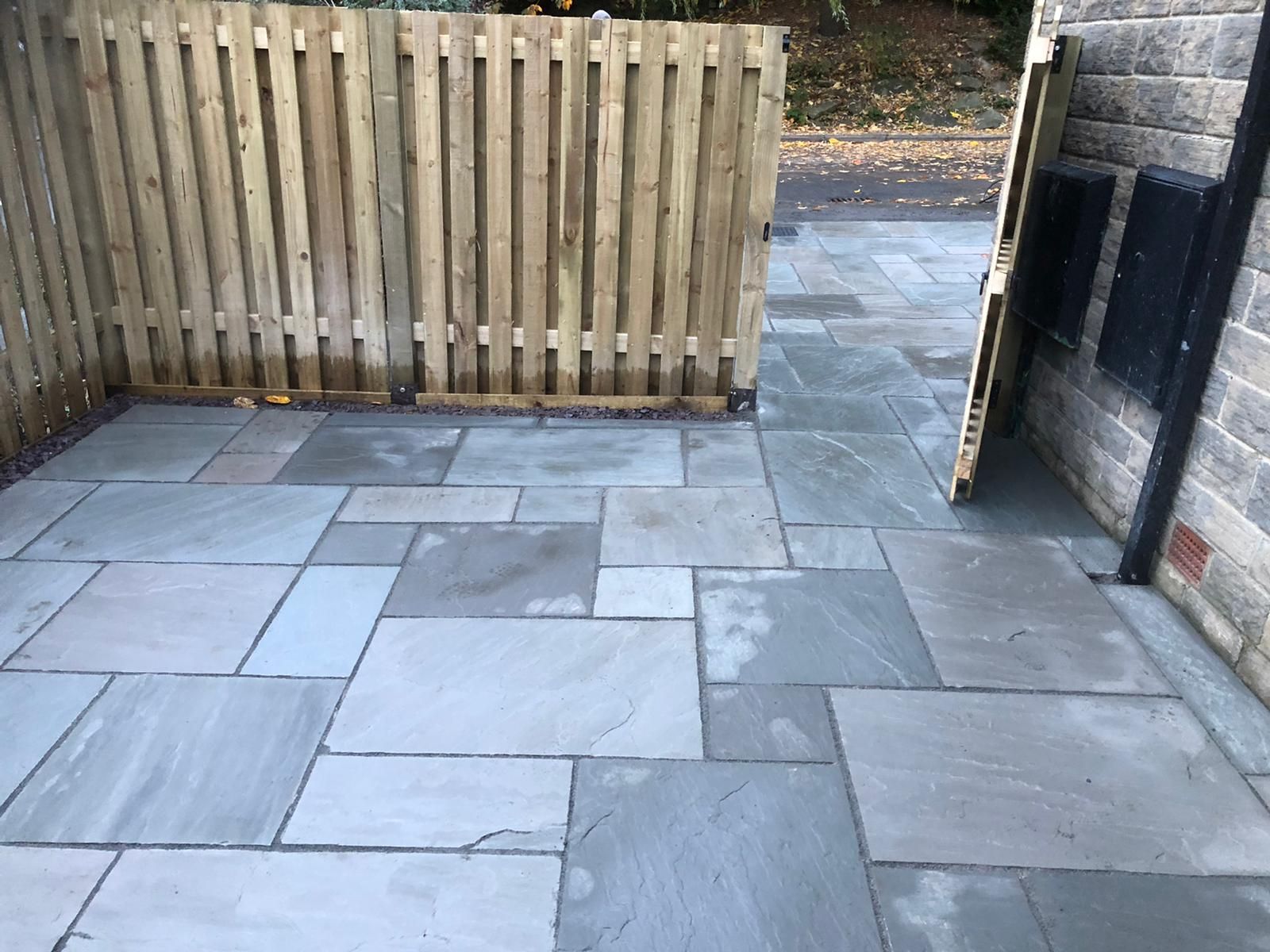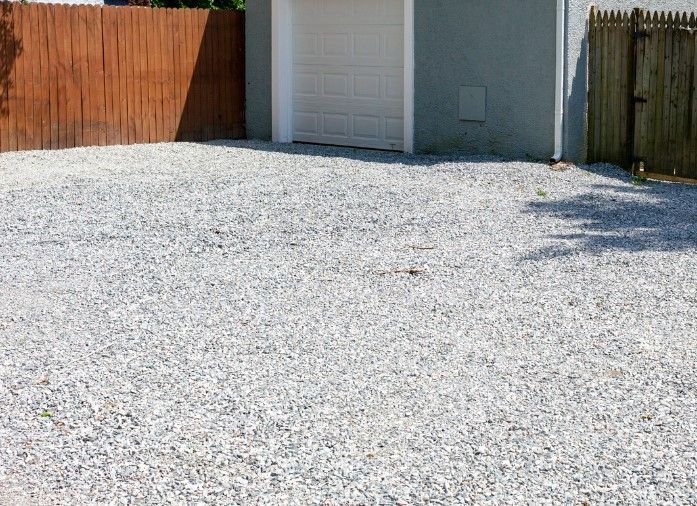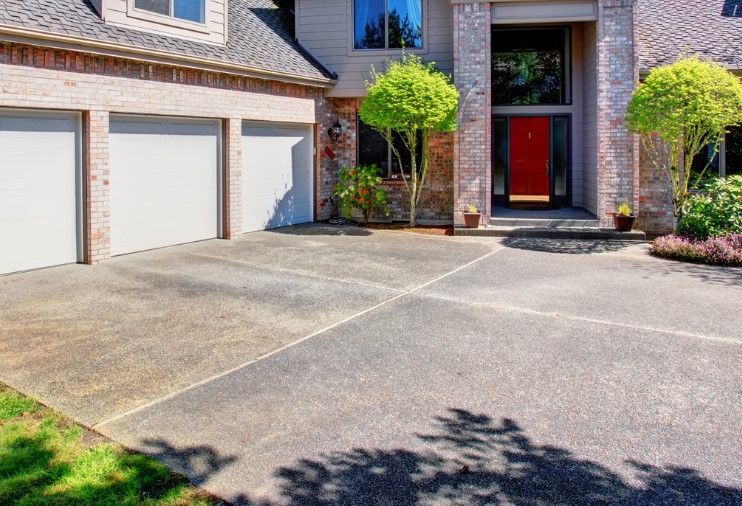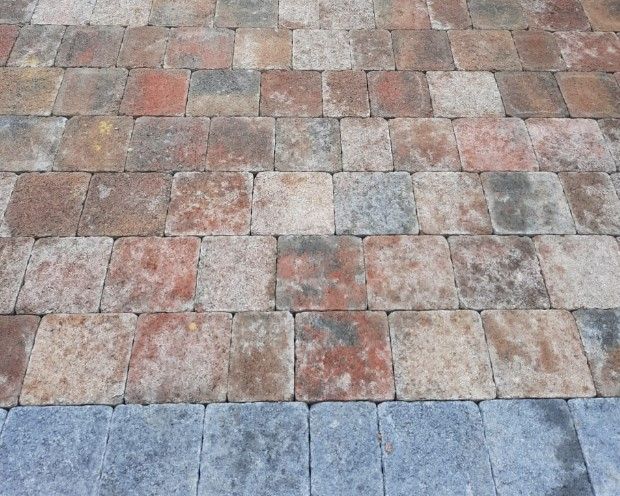Driveways Leeds
Expert driveway contractors Paving Leeds can install block paving, concrete, cobbles, Indian stone and gravel driveways - get in touch today to arrange a quote
INCLUDE A PHOTO & MEASUREMENTS FOR A QUICK DRIVEWAY QUOTE
SEND ANYTIME 24/7
Paving Leeds Driveway enquiry
Driveway Contractors Leeds
When it comes to giving your home a facelift, few projects are as impactful or necessary as a new driveway. It enhances Kerb appeal, provides a functional space for parking, and can even add value to your property. However, selecting the right driveway contractor in Leeds is crucial for ensuring that the job is done correctly and meets your expectations.
At Paving Leeds our team has been installing patios and driveways for many years. The important aspect of any driveway is ensuring that the groundworks are done properly to ensure your driveway doesn't dip, slump or crack.
The other import aspect with driveways is rainwater runaway. You don't want to be stepping out of your vehicle into a puddle, nor do you want sections of your garden becoming waterlogged.
We can provide assistance in selecting the best type of driveway for your budget, aesthetics and can finish off around your new driveway with addition landscaping features to complete the transformation off your property.
Simply get in touch to arrange a no obligation survey and quotation.
Concrete driveway contractor near me
Contact us any time of the day or night through our 'Send Enquiry' form if looking for concrete contractors near me in Leeds
Gravel Driveways
When it comes to choosing the right type of driveway for your property in Leeds, there are a variety of options to consider. From concrete to asphalt to block paving, the choices can be overwhelming. One option that is gaining popularity in recent years is gravel driveways. Gravel driveways offer a unique combination of affordability, durability, and aesthetics that make them a great choice for many homeowners.
One of the main reasons to choose a gravel driveway over other options is cost. Gravel is one of the most affordable driveway materials available, making it a great choice for homeowners on a budget. In addition to being a cost-effective material, gravel driveways are also one of the easiest to install, which helps keeps the total cost of the project down. With minimal maintenance required, gravel driveways can also save you money in the long run by reducing the need for repairs and replacements.
Another reason to choose a gravel driveway is durability. Gravel is a hard-wearing material that can withstand heavy traffic and harsh weather conditions. Unlike concrete or tarmac driveways, which can crack and deteriorate over time. As gravel driveways are able to flex and move with the ground there is hardly any way that they can become damaged removing the potential for repair costs and making them a long-lasting cheap maintenance option for homeowners.
In terms of aesthetics, gravel driveways offer a rustic and natural look that can complement a variety of architectural styles. From traditional country cottages to modern suburban homes, a gravel driveway can add charm and character to your property. There are many different stone chippings that can be used varying in size and colour which provides versatility. Ideally the gravel should be contained with proper edging which is typically block paving. Gravel can be combined with sections of block paving or Indian stone pavers too.
While gravel driveways offer many benefits, there are also some points to consider. Depending on usage your gravel driveway may require occasional topping up with fresh gravel to maintain their appearance and level surface as the stone chipping can get crushed and compounded over time and use.
Whilst we include weed retardant layers as part of the installation it is relatively easy for dirt and leaves to settle on the chippings and create a base from which weeds can grow. This is one of the main downsides that often puts people off choosing a gravel driveway. However, with modern weed killers designed for patios and driveways simply spraying or applying using a watering can can make this is a simple task which as well as keeping the weeds at bay keeps moss from forming around the stone chippings which can also affect the aesthetics of your driveway.
If you are looking for the most cost effective way to create a new or extend a section of driveway then gravel or a gravel combination with block paving or larger paving stones will enhance the appearance of your property in a very cost effective way.
Concrete Driveway Contractors
One of the main reasons why people will choose a concrete driveway is due to its longevity and durability. Concrete driveways are known for their ability to withstand heavy loads, making them an ideal choice for drives with multiple vehicles or where there will be heavy loading. This is why they are popular in properties where tradespeople live as they generally have larger works vehicles, such as vans, and carry out loading activities, day in and day out. In such circumstances concrete is preferable to tarmac which is more prone to cracking and will require more regular repair and maintenance activity to keep it in good condition.
Tarmac and imprinted concrete need to be resealed quite regularly, whereas concrete driveways only require occasional cleaning and sealing. Since they are generally chosen on practical grounds they are not as aesthetic as other driveways. Whilst colours can be added to the concrete mix most are kept as standard grey to make any repairs easier to blend in.
Standard concrete driveways can be prone to cracking and damage from extreme weather conditions such as frequent freeze-thaw cycles or high temperatures. This can be minimised by including sealed expansion gaps between sections of concrete rather than installing a single solid section of concrete. It is also an impermeable surface so additional drainage may be required depending on the level and direction of sloping of your driveway. We can discuss all these factors with you at the survey.
Indian Stone Driveway
Indian stone is a natural material that was initially quarried in India, leading to its name. It is known for its durability and long-lasting properties. It is available in a variety of colours, shapes, sizes and depths with deeper slabs are the ones suitable for driveways whilst the shallower ones are suitable for patios. Driveways slabs can be used for patios but you will be paying more for a thicker than needed stone. If you try to save costs but trying to get away with a patio Indian stone driveway you are likely to pay more in the long run to replace broken pavers.
The natural variations found in Indian stone has meant that suitable stones can be found for both modern and period properties - leading to its increased specification for driveways.
Another factor to consider when choosing between Indian stone and block paving is the maintenance requirements of each material. Indian stone driveways typically require less maintenance than block paving, as the natural weathering and aging of the stone can actually enhance its appearance over time. In contrast, block paving may require regular cleaning and re-sanding to prevent weeds, moss, and algae from growing between the blocks.
In terms of durability, Indian stone is a good long-lasting choice for driveways. The natural composition of Indian stone makes it resistant to wear and tear from heavy vehicles, foot traffic, and harsh weather conditions.
Indian stone is considered a more of a premium material than block paving that can enhance the kerb appeal and resale value of a home. The rustic and elegant appearance of Indian stone driveways can create a welcoming and inviting entrance to a property.
By utilising different shades and sizes of Indian paving stones we can ensure you have a unique driveway for years to come.
Indian Sandstone Driveway
Contact us any time of the day or night through our 'Send Enquiry' form if looking for an Indian sandstone driveway
Cobblestone Driveways
Cobblestone driveways are typically made from natural stones that have been shaped and smoothed for practical use. The primary materials used for driveways include granite, basalt, and limestone, chosen for their durability and aesthetic appeal as each is distinctly different. These stones are often sourced from quarries, where they are cut into fairly uniform sizes. The combination of their resilience against weather and heavy traffic, along with their timeless charm, makes cobblestone driveways a popular choice for enhancing the drive into residential properties.
Installing cobblestones in a driveway unsurprisingly, involves a number of similar steps to installing block paving. Firstly, the area must be properly excavated to a depth of about 6-8 inches, depending on the thickness of the cobblestones. This is then partially filled with crushed stone or gravel and a weed mat. Once the base is prepared, a layer of sand is spread on top to create a bed for the cobblestones, levelling it as needed. The cobblestones can be placed in any pattern but the more complex then the longer it will take to lay and add to the cost. Also depending on the space wanted between cobblestone, and their shape will influence whether they are set in sand or mortar to ensure a stable fit of the cobbles. For tightly fitting stones, sand will allow them to be tightly fitted together and stay in pace by supporting each other. For wider gaps and rounder cobbles mortar will be required to aid setting before a final sand mix is swept between the cobble stones to prevent stones from shifting their position when in use.
If you are considering a new driveway but are unsure which option to chose simply get in touch to arrange a no-obligation survey.
Need Help?
